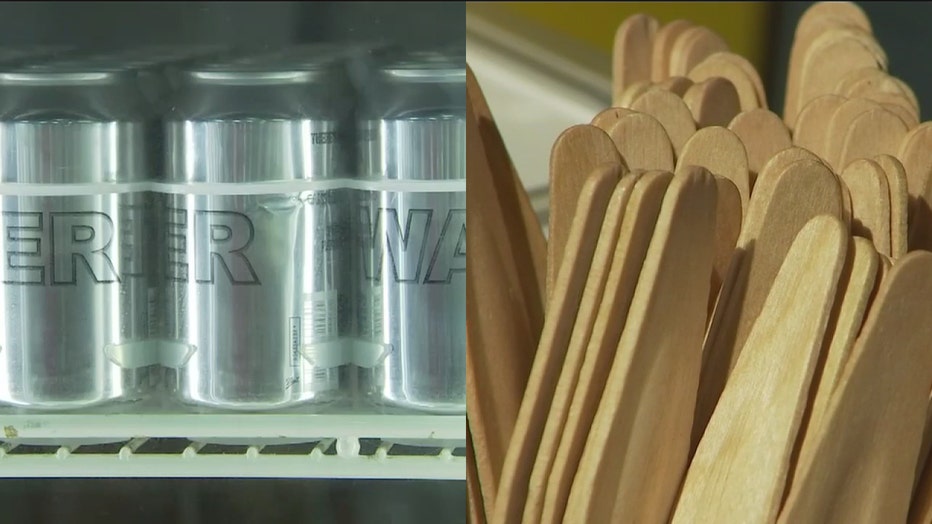Eckerd College will not spend money on single-use plastic starting Jan. 1
College vows to eliminate single use plastics
This week, the Eckerd College president signed a Break Free from Plastic pledge that aims to prevent using college money to buy single use plastics beginning January 1, 2020.
ST. PETERSBURG, Fla. - Eckerd College is going a step further than any other college in the country when it comes to plastic use. It's pledging to cut out single-use plastics altogether.
This week, the president of Eckerd College signed a Break Free from Plastic pledge that aims to prevent using college money to buy single-use plastics, beginning Jan. 1, 2020.
“I’m a sophomore. This is only my second year here and I immediately saw there was a plastic problem, even though Eckerd has made a lot of progress in comparison to other college campuses,” said student Alex Gordon.
Plastics are easy, cheap, and disposable, but items like balloons, glow sticks, plastic bags, even glitter are all on the chopping block at Eckerd.
“We then are also pledging to work with our vendors on campus to make similar changes. So we have a Starbucks here on campus. We have a food vendor for the cafeterias,” said Amy Siuda, the assistant professor of marine science.
Siuda said the pledge goes hand-in-hand with a two-year plastic prevention grant project from NOAA that is already underway. It started pointing out the plethora of plastic on campus and opened up discussions about alternatives.
“In admissions, they were handing out lots and lots, thousands of single-use water bottles to prospective students and their families when they were visiting campus,” said Siuda. “Even in the process of this, before signing the pledge, admissions has already been working to change that. They switched to box water for a period, and they’re looking to switch to potentially canned water.”
Eckerd now stocks boxed and canned water and has ditched plasticware for bamboo utensils.

“I think the biggest shift for me was just knowing to always have my reusables,” said Gordon, who is also involved in sustainability efforts on campus. “I just keep those clipped to my backpack everywhere I go, and that’s not something I would have been able to do having gone to a different campus other than Eckerd.”
The pledge takes reducing plastics a step further by requiring departments to follow guidelines for purchases. It even opens up conversations about packing materials for deliveries.
“We can start to be more aware of those things and make decisions as a college about where we want to buy things from or as individuals where we want to buy things from,” said Siuda.
It’s a change staff and students can get behind to help reduce their environmental footprint.
“I think this pledge is just a catalyst for things we can do on campus and in the community,” said Gordon.
Siuda said the pledge to reduce plastics is permanent and there will be an audit every spring to see how it’s going and what can improve.
Eckerd College representatives said the pledge does not include necessary plastics like those used for health and research.

